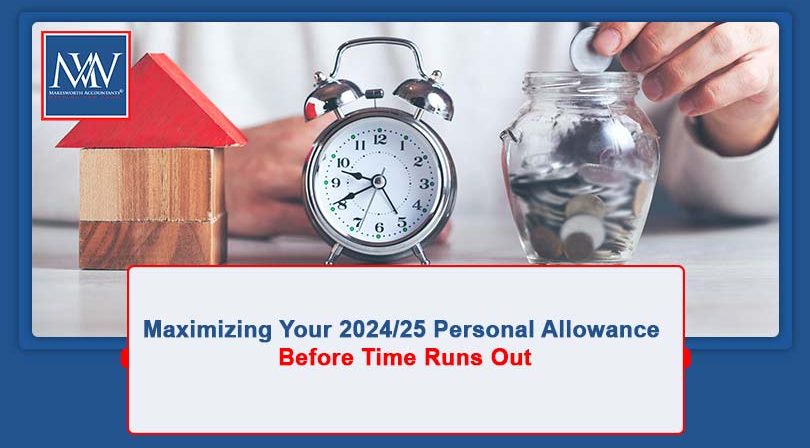
Maximizing Your 2024/25 Personal Allowance Before Time Runs Out
Understanding the Personal Allowance
Everyone is entitled to a personal allowance—the amount they can earn tax-free before income tax applies. For the 2024/25 tax year, this allowance is set at £12,570. However, it is a use-it-or-lose-it benefit, meaning any unused portion cannot be carried forward to the next tax year.
As the tax year-end approaches, assessing whether you have fully utilized your personal allowance and exploring opportunities to do so before 6 April 2025 is wise.
Ways to Make the Most of Your Allowance
1. Pay Yourself a Salary or Bonus
If you run a personal or family-owned business, consider taking additional profits as a salary or bonus before the end of the tax year. The optimal salary for 2024/25, assuming no other income, is £12,570. If you have not yet reached this threshold, you still have time to make the necessary adjustments.
2. Advance Income or Delay Expenses
From 2024/25 onward, the cash basis is the default method for assessing income for unincorporated businesses. Under this system, income is taxed when received, and expenses are recognized when paid. If your taxable income for the year falls below the personal allowance threshold, consider accelerating income (such as issuing invoices earlier) or postponing expenses to maximize the benefit of your allowance.
3. Utilize Pension Withdrawals
If you are 55 or older and have already accessed your pension flexibly—such as by withdrawing your 25% tax-free lump sum—you may want to take additional pension payments to make full use of your allowance. Doing so could allow you to withdraw further funds tax-free.
4. Preserve Your Allowance as a High Earner
Once adjusted net income exceeds £100,000, the personal allowance begins to taper. It is reduced by £1 for every £2 above this threshold and is eliminated once income reaches £125,140. To mitigate this, consider strategies such as deferring bonuses or dividends, contributing to pensions, or making charitable donations to reduce your adjusted net income and retain your allowance.
5. Take Advantage of the Marriage Allowance
If you are married or in a civil partnership and are unable to fully use your allowance, you may be able to transfer £1,260 of it to your spouse or civil partner, provided they are a basic rate taxpayer. This transfer, known as the marriage allowance, can reduce their tax bill by up to £252, making it a valuable tax-saving option.
Final Thoughts
With the end of the tax year fast approaching, reviewing your finances and making strategic decisions can help ensure you maximize your allowance. Whether through salary adjustments, pension planning, or income deferrals, taking action before 6 April 2025 can lead to significant tax savings.
Reference: ITA 2007, ss. 35, 55A—55E.
For more information, Book a Free Consultation
Need Accountancy Support?
For information on bespoke training, or if you have any other questions for Makesworth Accountant, please fill in your details below
















 151
151